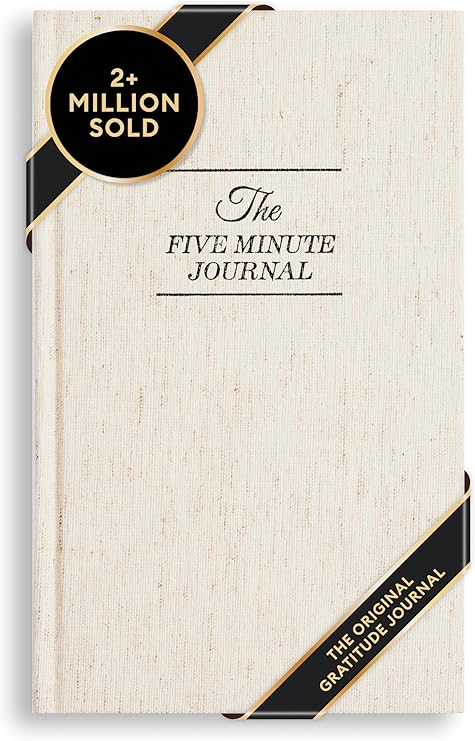If a relationship has become a millstone around your neck, it may be time to revisit its dynamics. Don’t shy away from taking a step back and reflecting on the expectations, boundaries, and communication within the relationship.
Relationships are meant to double our joy and should stand in support whenever we face adversities. It shouldn’t be the other way around and become the monkey on our back.
If you have been in a relationship that has been a constant source of stress and anxiety, here’s your chance to break free from the toxic cycle.
What Makes a Relationship Toxic?
A toxic relationship is where you aren’t receiving the treatment and respect you deserve. Or, the most appropriate way to say it is that you are moving to a point where a relationship is strangulating your peace, happiness, joy, and freedom—leaving you in an emotional void.
Usually, every relationship has its journey and experiences its own highs and lows. However, there are instances where relationships get stuck in the doldrums. We may start to feel that it is depriving us of the happiness we were expecting. Also, it can sometimes be detrimental to the point that it can make us fall into the black hole of self-doubt, stress, anxiety, and even depression.
Is your relationship toxic? Let’s find out.
- Do you often feel emotionally burdened or drained?
a) Yes
b) No - Do you feel illegitimately manipulated or controlled by your partner?
a) Yes
b) No - Do you struggle to find your place in the relationship and often feel disrespected?
a) Yes
b) No - Are you suffering from emotional or physical abuse in a relationship?
a) Yes
b) No - Do you lack the confidence to place your complete trust in your partner?
a) Yes
b) No
If you mostly answered ‘A’s, you are in a toxic relationship, and it’s time to set the rules.
Why do Relationships become Toxic?
Relationships become toxic when we try to exercise control over our partners. Everyone wants to enjoy freedom and do as they like. When we burden them with undue expectations and try to make them do things our way, we damage our relationships and create room for toxicity.
The reasons can be both conscious and subconscious. Sometimes, our desire to control and manipulate is so intense that we compromise on the relationship terms that we agreed upon. It generally comes from factors like unresolved past trauma, low self-esteem, unmet needs, and even poor communication skills.
When we come from a background of having childhood traumas, chances are that we either contribute to the toxicity or play the role of victim. When this happens, it’s important that, aside from being protective of ourselves, we reflect on our behaviors and make adjustments to cultivate healthy relationships with others.
Let’s understand it with the help of an example:
Christina and William were a married couple. In place of clearly communicating his concerns, William slipped into passive-aggressive behavior. When he didn’t like Christina going out with her friends, instead of clearly communicating his concern, he started to build resentment within and expressed his dissent in unrelated matters. Christina felt the heat but failed to understand its origin. It started a trail of events where actions and reactions flared, and they both grew apart.
Here, the toxicity is about not being expressive and causing confusion in the partner’s understanding of you and your relationship. When we don’t take responsibility for our actions, we are being toxic in ways that we may not realize.
How to Fix a Toxic Relationship?
Fixing a toxic relationship doesn’t mean trying to repair it at every cost. Sometimes, the level of toxicity is so intense that it goes beyond repair. It is crucial that you identify the stage that you are in and then try to work towards improvement.
To illustrate, let’s say there’s a couple with a severe imbalance of power, and the husband tortures his wife in almost every way possible. He beats her, takes away her money, and spends it on his alcohol addiction.
Here, the solution doesn’t lie in removing the toxicity. In fact, the need of the hour is for the wife to remove herself from this relationship. She should completely withdraw herself from the relationship and put her entire focus on herself.
#1: Build Healthy Boundaries
The most effective way to heal from a toxic relationship is to build healthy boundaries. Identify areas where you aren’t ready to compromise or negotiate. If you look closely, you’d know that the whole chain of cultivating unhealthy relationship terms began when you gave up on your terms and allowed the other person to infiltrate the boundaries.
A boundary could be as small as requiring a cool-down period after a fight. Or, say, asking for decent and civilized conduct during a fight. Also, it could be a social boundary where you want to manage your friendships and social circle without any intervention or control. When we build healthy boundaries and respect them, we move towards healthier relationships and enjoy greater satisfaction.
#2: Effective Communication
Communicating our personal truths and desires to our partners is equally important to let them know about our hopes and expectations in a relationship. If we aren’t already informing them about it, it’s our lack. We have to give due importance to our truths, boundaries, and preferences; only then can we expect them from our partners.
Try to communicate all that you feel within, even if it means discussing the hard topics with your partner. Not touching the sensitive topics may save you from the conflict. But not discussing them at all would place you in the toughest spot. It is better that you find ways to ease your tension and speak out about your concerns. Even if it doesn’t resolve the matter, it will get the ball rolling and help you navigate through the tough phase.
Active listening is part of the process, too. Sometimes, we can be so stuck in our ways that we fail to understand our partner’s perspective. So try to open the communication channel, as there’s nothing that cannot be resolved when it’s on the table.
#3: Focus on Personal Growth
Whenever you feel you aren’t in the best time of your relationship, try to shift your focus on yourself, and you’ll see the complaints and negativity wading away. Why? Because sometimes, it is our attitude that needs to be fixed. If we aren’t focusing on ourselves and placing the entire onus of our happiness on the relationship, we are to blame.
Focus on your personal growth, and you’ll find yourself moving toward happiness. Even if you are in a highly toxic relationship where you are burdened with the other person’s hopes, wishes, desires, and expectations, it’s still important to follow the path of personal growth. It will give you the confidence to rely on yourself and make the other person realize that you can be your own driver.
👉 Pro Tip:
Create a habit of writing your thoughts and feelings in a journal. It will help you cultivate a positive relationship with yourself. Also, writing a gratitude journal will help you shift your focus and make you feel happy from within.
#4: Learn to Forgive and Let Go
When we’re stuck in a toxic relationship, the key lesson is often to learn how to forgive or let go of hard feelings. This doesn’t mean forgiving someone forcefully; rather, it involves taking an introspective journey and softening our stance towards the person by trying to understand their perspective. Allow it to happen in due course, and do not rush into the process.
However, it’s important to understand that this isn’t always the case. Sometimes, you need to let go of the person rather than the grudge you’re holding onto. Deciding whether it’s time to forgive and forget or detach from the person with whom we’re in conflict requires careful judgment.
Follow your intuition, and it will guide you in the right direction. If you decide to follow any act, advice, suggestion, or command that is in discrepancy with your inner knowing, you are likely to commit a mistake or choose the wrong path.
Final Reflection
Finding a certain level of toxicity in every relationship is a common stance, but rebuilding it with trust, commitment, and dedication is the real catch. Be aware of the emotional triggers that you find in your relationships and try to make them the stepping stones to a fulfilling relationship. Understand that toxicity isn’t always intentional. It is sometimes the result of us acting in our subconscious capacities.
Bringing concerns to the surface and resolving them is the solution. When it comes to resolution and redressal, effective communication is critical. Stay committed to your journey of healing relationships, and you’ll overcome any challenges that once seemed overwhelming.
FAQ’s
Yes, we can fix a toxic relationship. When both partners are committed to their growth and ready to acknowledge the issues, it is easy to resolve the issues that have already surfaced. Also, you may seek the resort of consciously going into introspection to find unhealthy behaviors. You can even work towards correcting them before they appear problematic and cause trouble in your relationship.
If you are not able to derive the joy out of your relationship and feel drained, chances are you are in a toxic relationship. It generally stems from the tendencies of control, manipulation, emotional abuse, gaslighting, and other tactics that are practiced to keep the other person in your control. This often leads to distrust and a lack of empathy towards the other person.
If your partner isn’t supporting you in the relationship work and making no effort to resolve the issues that stand in your way, it’s better to focus on your things. There’s absolutely nothing that you can do other than work on yourself. Either it will make him realize your value, or you’ll reach the understanding that the relationship itself is not worth your time and energy.
Healthy boundaries are the boundaries that you prefer to safeguard your personal interests. It could be anything from asking for alone time to pursue the activities of your choice to not allowing the other person the space to interfere in your financial matters. It strictly varies from person to person depending upon the gravity of their needs and preferences in a relationship. However, it is essential to discuss it with your partner and analyze if there’s any conflict of interest.
There’s no strict timeline for it. It strictly depends upon the severity of the issue that you are facing. If there’s something that has impacted you and your partner on a core level, it might take a little longer than the usual instances. All it takes is patience, commitment, and consistent effort from both ends.










